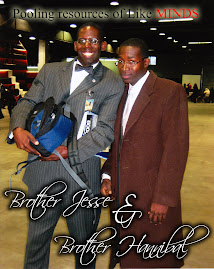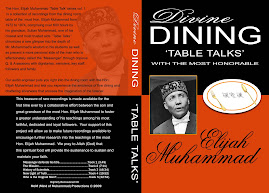http://www.bloomberg.com/apps/news?pid=20601087&sid=afrdATVXPEAk&refer=worldwideSwine Flu May Be Human Error; WHO Investigates Claim (Update1)
By Jason Gale and Simeon Bennett
May 13 (Bloomberg) --
The World Health Organization is investigating a claim by an Australian researcher that the swine flu virus circling the globe may have been created as a result of human error.
Adrian Gibbs, 75, who collaborated on research that led to the development of Roche Holding AG’s Tamiflu drug, said in an interview that he intends to publish a report suggesting the new strain may have accidentally evolved in eggs scientists use to grow viruses and drugmakers use to make vaccines. Gibbs said he came to his conclusion as part of an effort to trace the virus’s origins by analyzing its genetic blueprint.
“One of the simplest explanations is that it’s a laboratory escape,” Gibbs said in an interview with Bloomberg Television today. “But there are lots of others.”
The World Health Organization received the study last weekend and is reviewing it,
Keiji Fukuda, the agency’s assistant director-general of health security and environment, said in an interview May 11. Gibbs, who has studied germ evolution for four decades, is one of the first scientists to analyze the genetic makeup of the virus that was identified three weeks ago in Mexico and threatens to touch off the first
flu pandemic since 1968.
A virus that resulted from lab experimentation or vaccine production may indicate a greater need for security, Fukuda said. By pinpointing the source of the virus, scientists also may better understand the microbe’s potential for spreading and causing illness, Gibbs said.
Possible Mistake
“The sooner we get to grips with where it’s come from, the safer things might become,” Gibbs said by phone from Canberra yesterday. “It could be a mistake” that occurred at a vaccine production facility or the virus could have jumped from a pig to another mammal or a bird before reaching humans, he said.
Gibbs and two colleagues analyzed the publicly available sequences of hundreds of amino acids coded by each of the flu virus’s eight genes. He said he aims to submit his three-page paper today for publication in a medical journal.
“You really want a very sober assessment” of the science behind the claim, Fukuda said May 11 at the WHO’s Geneva headquarters.
The U.S. Centers for Disease Control and Prevention in Atlanta has received the report and has decided there is no evidence to support Gibbs’s conclusion, said
Nancy Cox, director of the agency’s influenza division. She said since researchers don’t have samples of swine flu viruses from South America and Africa, where the new strain may have evolved, those regions can’t be ruled out as natural sources for the new flu.
No Evidence
“We are interested in the origins of this new influenza virus,” Cox said. “But contrary to what the author has found, when we do the comparisons that are most relevant, there is no evidence that this virus was derived by passage in eggs.”
The WHO’s collaborative influenza research centers, which includes the CDC, and sites in Memphis, Melbourne, London and Tokyo, were asked by the international health agency to review the study over the weekend, Fukuda said. The request was extended to scientists at the
Food and Agriculture Organization in Rome, the
World Organization for Animal Health in Paris, as well as the WHO’s influenza network, he said.
“My guess is that the picture should be a lot clearer over the next few days,” Fukuda said. “We have asked a lot of people to look at this.”
Virus Expert
Gibbs wrote or co-authored more than 250 scientific publications on viruses during his 39-year career at the Australian National University in Canberra, according to
biographical information on the university’s Web site.
Swine flu has infected 5,251 people in 30 countries so far, killing 61, according to WHO data. Scientists are trying to determine whether the virus will mutate and become more deadly if it spreads to the Southern Hemisphere and back. Flu
pandemics occur when a strain of the disease to which few people have immunity evolves and spreads.
Gibbs said his analysis supports research by scientists including
Richard Webby, a virologist at
St. Jude Children’s Research Hospital in Memphis, who found the new strain is the product of two distinct lineages of influenza that have circulated among swine in North America and Europe for more than a decade.
In addition, Gibbs said his research found the rate of genetic mutation in the new virus was about three times faster than that of the most closely related viruses found in pigs, suggesting it evolved outside of swine.
Gene Evolution
“Whatever speeded up the evolution of these genes happened at least seven or eight years ago, so one wonders, why hasn’t it been found?” Gibbs said today.
Some scientists have speculated that the 1977 Russian flu, the most recent global outbreak, began when a virus escaped from a laboratory.
Identifying the source of new flu viruses is difficult without finding the exact strain in an animal or bird “reservoir,” said
Jennifer McKimm-Breschkin, a virologist at the Commonwealth Science and Industrial Research Organization in Melbourne.
“If you can’t find an exact match, the best you can do is compare sequences,” she said. “Similarities may give an indication of a possible source, but this remains theoretical.”
The World Organization for Animal Health, which represents chief veterinary officers from 174 countries, received the Gibbs paper and is working with the WHO on an assessment, said
Maria Zampaglione, a spokeswoman.
Genetic Patterns
The WHO wants to know whether any evidence that the virus may have been developed in a laboratory can be corroborated and whether there are other explanations for its particular genetic patterns, according to Fukuda.
“These things have to be dealt with straight on,” he said. “If someone makes a hypothesis, then you test it and you let scientific process take its course.”
Gibbs said he has no evidence that the swine-derived virus was a deliberate, man-made product.
“I don’t think it could be a malignant thing,” he said. “It’s much more likely that some random thing has put these two viruses together.”
Gibbs, who spent most of his academic career studying plant viruses, said his major contribution to the study of influenza occurred in 1975, while collaborating with scientists
Graeme Laver and
Robert Webster in
research that led to the development of the anti-flu medicines Tamiflu and Relenza, made by GlaxoSmithKline Plc.
Bird Poo
“We were out on one of the Barrier Reef islands, off Australia, catching birds for the flu in them, and I happened to be the guy who caught the best,” Gibbs said. The bird he got “yielded the poo from which was isolated the influenza isolate strain from which all the work on Tamiflu and Relenza started.”
Gibbs, who says he studies the evolution of flu viruses as a “retirement hobby,” expects his research to be challenged by other scientists.
“This is how science progresses,” he said. “Somebody comes up with a wild idea, and then they all pounce on it and kick you to death, and then you start off on another silly idea.”
To contact the reporters on this story:
Jason Gale in Geneva at
j.gale@bloomberg.net;
Simeon Bennett in Singapore at
sbennett9@bloomberg.net.
Last Updated: May 13, 2009 01:36 EDT
Information Researched By: Sister Anonymous








































